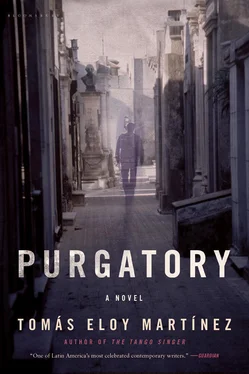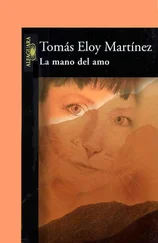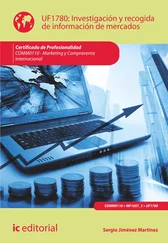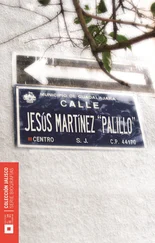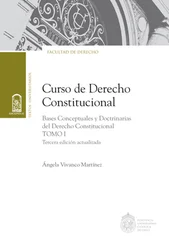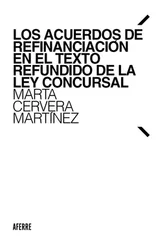Shortly before noon, Chela came to relieve her. Emilia realised that her sister’s mind was on other things. She had got engaged to a business consultant with the looks of a tennis pro and they were planning to get married in April or May the following year. Their mother’s lunatic state made it impossible to hold the wedding reception at the bride’s home and the major dilemma in her sister’s life was where to host the four hundred people on the guest list which Chela made and unmade every day.
She arrived at the clinic complaining that the rain was getting worse. She fetched a chair so she could sit down for a minute, and when another nurse came and told them that the results of the pathologist’s tests would be ready in an hour asked whether she could leave yet.
‘What are the tests for?’ she asked anxiously.
‘To see whether Mamá has cancer,’ Emilia told her. ‘She probably doesn’t.’
‘What kind of cancer? What happens if she’s got it?’
‘There’s no point getting worried ahead of time. I told you, just take it easy.’
‘How am I supposed to take it easy? Can’t you see she’s trying to ruin my wedding? She’s been like this for months, playing at being ill and swearing like a trooper.’
‘Well then, you just do what you have to do. I’ll look after her, I don’t mind.’
Two days later, when Dr Dupuy came back from his trip, the tests had revealed a tumour in the sigmoid colon. There was a silver lining, according to the doctors, because there were no signs of metastases. The mother’s bony, emaciated body barely swelled the sheets. She had cannulas in her nose, and the usual intravenous feeding tube in her arm. After midnight, the rain stopped and the air began to move sluggishly between the buzzing of the blowflies and the death throes of the foul-smelling flowers. The corridor was covered by a slick, humid film and Emilia could clearly see the prints left by the nurses. Her father talked with the doctors for about half an hour and then shut himself up in a phone booth. He emerged having already made a decision.
He did not inform his daughters of his decision until the following day. He called them into his study, a place they were only admitted to on special occasions. He closed the curtains and made sure the door was locked. Chela, as unsettled as Emilia, perched on the edge of her seat as though she wanted to escape. The study had always been gloomy, but now it was worse. The walls which were free of books were hung with the diplomas and citations from his years of service to his country. The doctor addressed his daughters in a voice so subdued, so secretive, it seemed to dissolve into the air. Ever since they were little, the daughters had known that everything their father did and said was a secret and did not even discuss it with each other. It made no sense to ask them to be discreet, but this is what Dupuy did. He went further: he forced them to swear that they would never repeat what he might say that day or in the difficult days ahead to anyone, anyone, he repeated, not even to your fiancé, Chela, or your husband when he’s your husband, not even to the priest in the confessional. Emilia feared the worst. She feared — though she did not dare to formulate the thought — that her father had decided to kill their mother, out of compassion or for some other reason, and was going to ask them to be complicit in his crime. In the thin small voice that was all she could manage, she asked: ‘You’re not going to confess a sin, are you, Papá ? Because if it’s a sin, we have to confess it.’ ‘How could you think such a thing?’ her father answered. ‘I’m a Catholic, I abide by God’s commandments, I would never do anything to make you lose His sanctifying grace.’
He moved his chair over to the desk and went on talking, his face turned towards the window as though even there, even out there in the garden, his enemies might be listening. Emilia never really knew who these enemies were her father talked about, because one day it would be the Montoneros 12, then it was the People’s Revolutionary Army 13and later, when they had all been exterminated, it was a brigade led by some admiral who was plotting against the Eel, or an envoy of the American government, or Pinochet threatening to invade the islands on the Beagle channel, or corrupt intermediaries paralysing the nuclear power plants. When one group retreated, another advanced, and sometimes none of them retreated.
‘Last night I stopped them operating on Ethel,’ he told them. ‘It would have been butchery. I called Dr Erich Schroeder and he proposed an excellent solution. I’m going to take Ethel out of the clinic and have Schroeder take over her treatment.’
‘I’m sorry, but I don’t see how that will be better for Mamá . Who is this Schroeder?’ asked Emilia. ‘I’ve never heard of him.’
‘He’s a world-renowned specialist. You’ve never heard of him because he treats only a very few select patients and he has a 100 per cent success rate. He’s been living in Argentina for twenty years in absolute secrecy. He has built a machine that captures gamma rays from space and focuses them on the patient’s body. In one or two treatments, they’re cured.’
‘At the clinic, they recommended she have surgery, and I thought that was the best option. It’s more reliable. Mamá ’s heart is strong, she’ll have no problem with the anaesthesia. If you have such confidence in Schroeder, why don’t you ask him to operate?’
‘If he’d offered to operate, I would have accepted without question. But he’s against the idea. Schroeder’s rays can only work if the patient has not had an operation. He explained to me in a cancer as aggressive as your mother’s, when the scalpel touches the tumour, there’s a danger that abnormal cells will quickly move through the circulatory system.’
‘I’d like to find out a bit more,’ said Emilia.
‘I don’t understand what the two of you are talking about,’ said Chela. ‘Whatever Papá decides will be for the best. Do I have to listen to any more? Can I go now? Marcelo is going to come by and pick me up soon.’ Marcelo Echarri, the fiancé. Dr Dupuy had not told them everything, and what was left unsaid was the heart of the secret that the sisters had sworn to keep. Chela would never know it because she left as soon as her father opened the door and Emilia would have preferred not to find out what it was. Years later, when she thought about the episode, she was not sure that it was not a wild dream in which they had all become entangled, or whether St Dymphna’s influence had also harmed their father. The name Erich Schroeder would one day be famous, but not for his gamma ray machine. In 1984, it was discovered that in Auschwitz and Dwory he had developed a system for using energy from space to kill prisoners and he was convicted as a war criminal. When Dr Dupuy knew him, he had been living under his real name on the outskirts of Buenos Aires and no one had bothered him for years. His gamma ray machine attracted the attention of the intelligence agencies and quickly became the focus of a cold war between the three governmental forces. Each of them wanted control of the machine, but Schroeder had no respect for any of them. He respected only Dupuy.
‘Schroeder,’ Emilia’s father told her, ‘is the only person in the world who knows how this machine works. He has not shared that knowledge with anyone, has not written down his formulae for posterity, and when he dies all that we will be left with will be a pile of useless metal which can say nothing, which will mean nothing. I’ve seen what this machine can do, but its inner workings, the way in which the treatments take place, is a mystery that may rely on creatures that are nothing like us, creatures that are pure energy, who move effortlessly between realities, between the future and the present.’
Читать дальше
